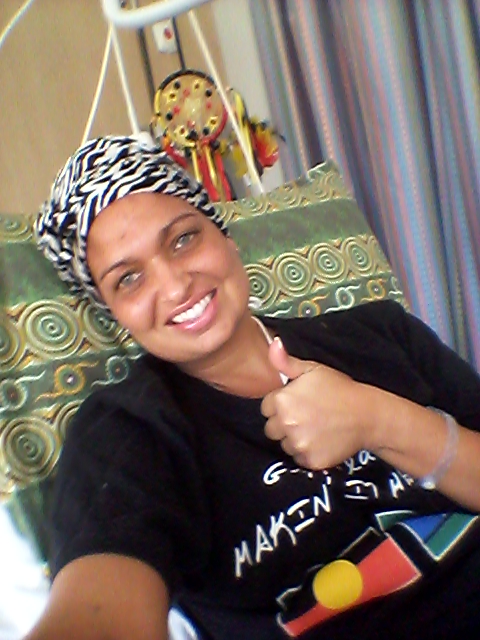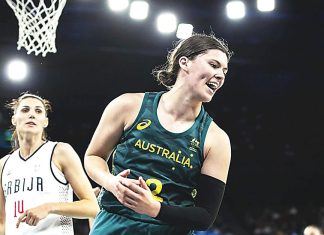A terminally ill woman’s race against time to find a bone marrow donor has sparked a nation-wide call out for assistance and widespread support from Latrobe Valley’s indigenous and education community.
Indigenous men and women from across the country have come forward to have their blood types tested, in hope of becoming an eligible tissue type match with Geelong woman Kylie Clarke, 32,who requires a bone marrow transplant by September to cure a rare form of aggressive cancer, acute myeloid leukaemia.
Ms Clarke spent seven years in Gippsland over the past decade and managed the Koorie Footprints to Higher Education program at Monash University Gippsland Campus for more than three years, assisting indigenous students transition into tertiary education.
After blood tests from Ms Clarke’s family members proved they were unsuitable donors, a social media campaign instigated by close friends sparked on online callout for indigenous Australian’s to test their tissue types for compatibility and register as bone marrow donors.
While the campaign has gone viral since its launch on 29 July, a matching tissue type donor is yet to be found, and Ms Clarke effectively has two weeks for a suitable donor to register their blood before her condition deteriorates beyond repair.
The Alfred Hospital is exploring avenues through which Ms Clarke can attract an umbilical and transplant donor.
Speaking to The Express from Barwon Health cancer care unit at Geelong Hospital during day two of her second round of consolidating chemotherapy, Ms Clarke said she was overwhelmed by the number of indigenous people who had responded to the callout.
“A really positive thing that’s come out of this is the awareness about donorship – even if I don’t find a potential match, it gives me a great deal of satisfaction to know someone in the same situation as me might have a better chance when they need a donor,” Ms Clarke said.
According to the Australian Bone Marrow Donor Registry, which was unable to provide statistics on the subsequent increase in indigenous donors, Aboriginals anecdotally accounted for less than one per cent of its national database.
The frantic search for a donor comes after a “whirlwind” period for Ms Clarke, who only learnt of her debilitating condition in May, when she cut short global holiday due to poor health.
“When I returned to Australia, I was comfortable and confident in being treated in my own country, but I didn’t know the extent of the illness – I thought with a bit of rest and Mum’s tucker and I would back on my feet,” Ms Clarke said.
“But when I was diagnosed, it was a huge shock – just that word ‘leukaemia’ was enough by itself, but this particular condition is very rare for young people to get, and being so aggressive, they wanted to get me in straight away and treat it aggressively.
“I didn’t have a lot of time to process it and reflect on it, it’s been very very overwhelming and scary. I’ve gone from being healthy and with 150 per cent freedom in my life to this and no freedom at all; there’s been a lot of adapting and accepting.”
Current Koorie Footprints coordinator and former colleague Gina Bundle said Ms Clarke was well regarded across the Valley’s indigenous and non-indigenous communities.
“She had a huge impact here running the (Footprints) program, her own personality increased the uptake of the student numbers in Gippsland two-fold,” Ms Bundle said.
“She’s one of those really really nice people, a very caring person and that comes across in a way that is so welcoming, we all just hope that one lucky person who comes forward matches our Kylie.
“To any indigenous people reading this, come forward and be tested, because if you don’t match Kylie, you might match someone else in future.”
People wishing to test their blood tissue compatibility can book a blood test appointment by phoning 13 14 95.
For more information about bone marrow donations, visit the Australian Bone Marrow Donation Registry at
www.abmdr.org.au












